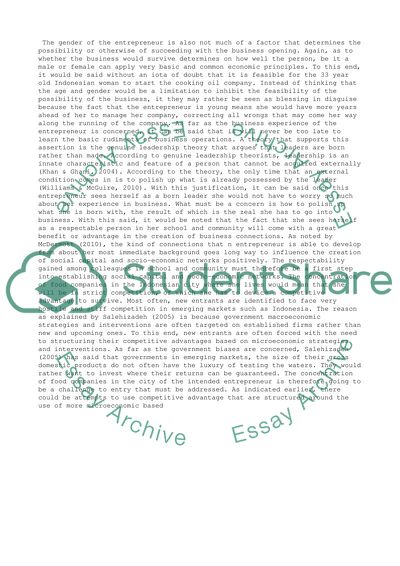Cite this document
(“How Hard is it for a Woman to Start a Food Companie In The Indonesian Assignment”, n.d.)
How Hard is it for a Woman to Start a Food Companie In The Indonesian Assignment. Retrieved from https://studentshare.org/management/1486723-week
How Hard is it for a Woman to Start a Food Companie In The Indonesian Assignment. Retrieved from https://studentshare.org/management/1486723-week
(How Hard Is It for a Woman to Start a Food Companie In The Indonesian Assignment)
How Hard Is It for a Woman to Start a Food Companie In The Indonesian Assignment. https://studentshare.org/management/1486723-week.
How Hard Is It for a Woman to Start a Food Companie In The Indonesian Assignment. https://studentshare.org/management/1486723-week.
“How Hard Is It for a Woman to Start a Food Companie In The Indonesian Assignment”, n.d. https://studentshare.org/management/1486723-week.


